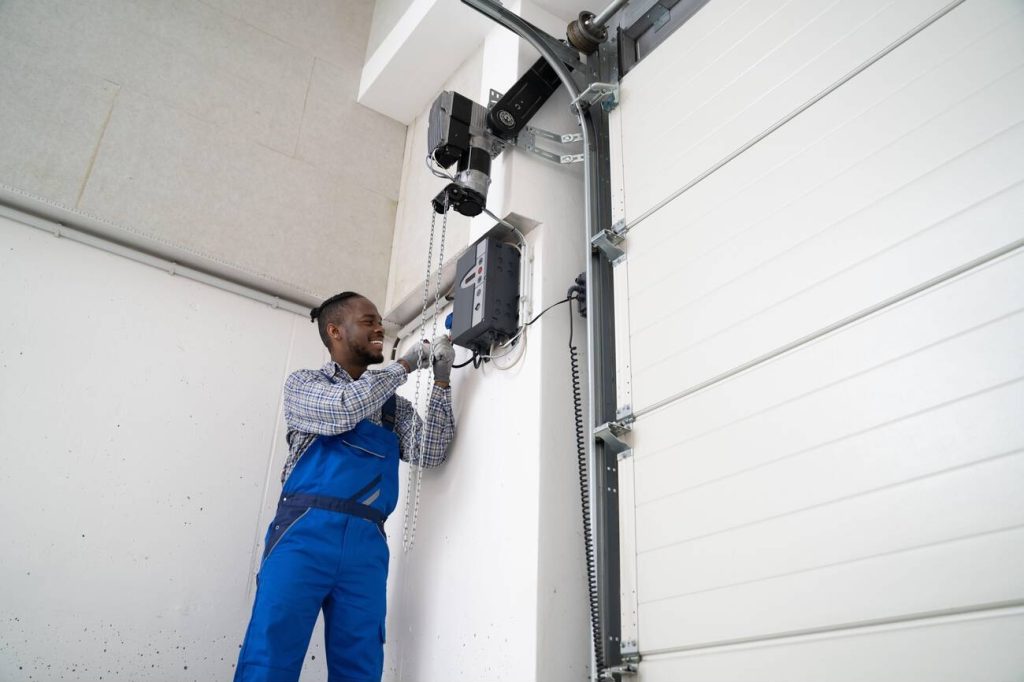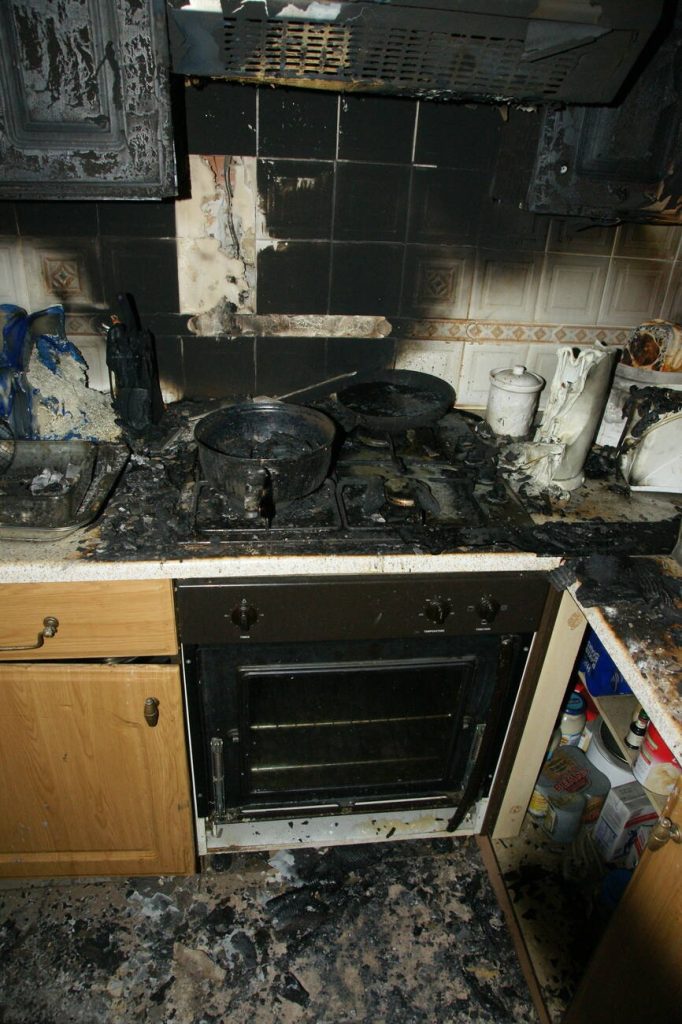Regular inspections and tests are crucial to ensuring the proper functioning and safety of your garage doors. By following a comprehensive guide on various aspects of maintenance, you can prevent malfunctions, extend the lifespan of your doors, and enjoy smooth operation. So, let’s dive in and discover the importance of regular maintenance for your garage doors.
Importance of Regular Maintenance
Regular maintenance is important to ensure the smooth operation and longevity of garage doors. Neglecting maintenance can lead to common mistakes that can cause issues with your garage door. By investing in professional maintenance, you can benefit from their expertise and ensure that your garage door is inspected and repaired properly. Signs of a neglected garage door include excessive noise, jerky movements, and difficulty in opening or closing. To prevent costly repairs, it is essential to follow cost-effective maintenance tips such as regularly lubricating hinges and tracks, checking and replacing batteries, and cleaning the door surface. Most importantly, practicing preventative maintenance can save you from unexpected garage door malfunctions and ensure that your garage door operates smoothly for years to come.
Garage Door Balance and Safety Testing
Make sure to test the balance of your garage door by disconnecting the carriage and checking if it stays in place when opened halfway. This is important to ensure that your garage door is functioning properly and to prevent any potential accidents or damage. Here are some things you need to know about garage door balance and safety testing:
- Common balance issues: Garage doors can become unbalanced over time due to various factors such as worn-out springs or damaged tracks.
- Safety testing requirements: It is essential to conduct safety tests on your garage door, including a contact reversal test and a photo eye sensor test, to ensure that it reverses when it comes into contact with an object and that the sensors are properly aligned.
- Impact of weather conditions: Extreme weather conditions, such as temperature fluctuations or high humidity, can affect the balance and operation of your garage door.
- Importance of professional maintenance: Regular maintenance by a professional technician is crucial to identify and address any potential issues with your garage door.
- DIY maintenance tips: There are also some maintenance tasks that you can do yourself, such as regularly inspecting and lubricating door hinges, cleaning tracks, and ensuring all hardware is tightly secured.
Torsion Spring and Hardware Maintenance
To ensure the proper functioning of your garage door, it’s important to inspect and maintain the torsion spring and hardware on a regular basis. Torsion spring safety is crucial, so avoid adjusting it yourself and seek help from a trained technician. Don’t forget to inspect and lubricate door hinges, making sure they are tight and functioning smoothly. It’s also important to inspect lift cables for any frays or damage, as they are under high tension. Proper tension adjustment is necessary for optimal door operation, so check the nuts on the turnbuckle and tighten or loosen them as needed. By maintaining garage door hardware, lubricating door hinges, inspecting lift cables, and ensuring proper tension adjustment, you can ensure the safe and efficient operation of your garage door.
Garage Door Opener Battery and Lightbulb Replacement
When replacing the battery in your garage door opener, be sure to follow the manufacturer’s instructions for proper installation. It’s essential to troubleshoot any issues that may arise during the battery replacement process. Here are some tips to help you out:
- Troubleshooting tips for garage door opener battery replacement:
- Check the battery connections to ensure they are secure.
- Test the battery with a multimeter to determine if it has a sufficient charge.
- Inspect the battery for any signs of damage or corrosion.
- How to choose the right lightbulbs for your garage door opener:
- Use LED bulbs for energy efficiency and long lifespan.
- Look for bulbs specifically labeled for garage door openers.
- Avoid using high-wattage bulbs that can cause overheating.
- Common signs that indicate it’s time to replace your garage door opener battery:
- The remote control starts to lose its range.
- The garage door opener becomes slow or unresponsive.
- The battery fails to hold a charge for an extended period.
- The importance of regular maintenance for garage door opener efficiency:
- Regularly clean and lubricate the moving parts of the garage door opener.
- Inspect and tighten any loose hardware or connections.
- Schedule professional maintenance at least once a year.
- Tips for prolonging the lifespan of your garage door opener battery:
- Keep the battery terminals clean and free of corrosion.
- Avoid overusing the garage door opener, especially during extreme weather conditions.
- Replace the battery before it completely drains to prevent damage to the opener.
Chain/Belt Tension Adjustment
Adjusting the chain/belt tension is crucial for ensuring the proper functioning of your garage door opener. Incorrect tension can lead to various problems, such as noisy operation, jerky movements, or even a door that won’t open or close properly. To troubleshoot chain tension issues, start by disengaging the carriage and manually closing the door to check the tension. If there is slack, you can loosen the nuts on the turnbuckle and rotate it counter-clockwise to remove the slack. Make sure the chain/belt is at least 1/4 inch from the bottom of the rail on the other side. Then, tighten the nuts on the turnbuckle to secure the desired tension. Finally, manually open the door to engage the carriage to the turnbuckle. Maintaining optimal chain/belt tension will ensure smooth and reliable garage door operation.
Garage Door Cleaning and Maintenance
Regularly cleaning and maintaining your garage door is essential for its longevity and proper functioning. To ensure your garage door stays in top shape, here are some important tips to follow:
- Proper cleaning techniques: Use a soft sponge or cloth and an appropriate cleaner to wash the door. Rinse it thoroughly with a hose.
- Preventative maintenance tips: Inspect the door annually to determine if it requires painting or staining. Wipe wooden doors with a dry cloth and consider repainting or staining as needed.
- Choosing the right cleaning products: Select cleaners that are gentle yet effective on the material of your garage door.
Cleaning and maintaining different types of garage doors is important to prevent damage and ensure optimal performance. Avoid common cleaning mistakes such as using abrasive cleaners or neglecting regular maintenance. By following these tips, you can keep your garage door looking great and functioning properly for years to come.
Garage Door Inspection and Safety Tests
To ensure the safety of your garage door, it is important to regularly inspect its operation and perform safety tests. By conducting thorough inspections and tests, you can identify common garage door safety issues and troubleshoot any balance issues that may arise. Regular maintenance plays a crucial role in preventing costly repairs and ensuring the longevity of your garage door. Here are some tips for conducting a thorough garage door inspection:
- Observe the door for smooth operation and minimal noise.
- Check for catching or jerky movements.
- Notice if the door feels heavier than usual when opening manually.
- Look for visual or auditory signs of malfunction.
In addition to inspection, it is important to be aware of essential safety features to look for in a garage door opener. This includes features such as photo eye sensors and a mechanical reverse feature. By staying proactive and conducting regular inspections and tests, you can ensure the safety and proper functioning of your garage door.
Garage Door Hardware Maintenance
Inspect garage door tracks and hinges periodically to ensure they are in good condition and functioning properly. Proper maintenance of your garage door hardware is essential for its longevity and smooth operation. Here are some important points to consider:
- Lubrication tips for garage door hardware: Regularly lubricate the hinges, rollers, and springs with a silicone-based lubricant to reduce friction and prevent rust.
- Common garage door hardware issues: Look out for loose bolts, worn-out rollers, and misaligned tracks, as these can affect the door’s performance.
- DIY garage door hardware maintenance: Tighten any loose bolts or fasteners and clean the tracks regularly to prevent debris buildup.
- Importance of professional garage door hardware inspection: Schedule regular inspections by a professional to identify any potential issues and ensure proper functioning of the hardware.
- How to extend the lifespan of garage door hardware: Follow manufacturer’s guidelines for maintenance, avoid excessive force on the door, and address any problems promptly to prevent further damage.
Garage Door Opener Maintenance
Make sure you regularly check and tighten loose hardware on your garage door opener to ensure proper functioning. Garage door opener maintenance is essential to prevent common opener issues and ensure the safety of your garage door. To troubleshoot your garage door opener, start by checking the batteries in the remote control and replacing them if necessary. If the remote control still doesn’t work, try reprogramming it according to the manufacturer’s instructions. Additionally, inspect the opener for any loose or damaged wires, and tighten or replace them as needed. Remember to follow opener safety precautions, such as disconnecting power before performing any maintenance. By regularly maintaining and troubleshooting your garage door opener, you can keep it working smoothly and ensure the safety of your garage.
Garage Door Seals and Springs Maintenance
Regularly replacing worn garage door seals and lubricating springs is crucial for maintaining the functionality and longevity of your garage door.
To ensure effective weather sealing and extend the lifespan of your garage door springs, follow these spring maintenance tips:
- Replace brittle or worn garage door seal to prevent drafts and moisture from entering your garage.
- Secure the door with a clamp before working on the seal to avoid accidents.
- Remove old weather stripping and clean the door groove before installing a new piece for a tight seal.
Additionally, regular lubrication is important for smooth operation and to prevent common issues with garage door seals and springs. By taking these maintenance steps, you can ensure your garage door functions properly and lasts for years to come.
Garage Door Surface Cleaning and Miscellaneous Maintenance
To keep your garage door looking its best, wipe down the surface with a clean, dry cloth to remove any dirt or debris. Regular cleaning is essential to maintain the appearance of your garage door. When choosing a cleaner, make sure it is suitable for the material of your door. For stains, use a mild detergent mixed with water and gently scrub the affected area. Protect the surface of your garage door by applying a protective sealant or wax. This will help prevent damage from UV rays, moisture, and other environmental factors. If your garage door has weather damage, such as peeling paint or rust, address it promptly by sanding, repainting, or repairing the affected areas. Regular maintenance and care will extend the lifespan of your garage door and keep it looking great.






